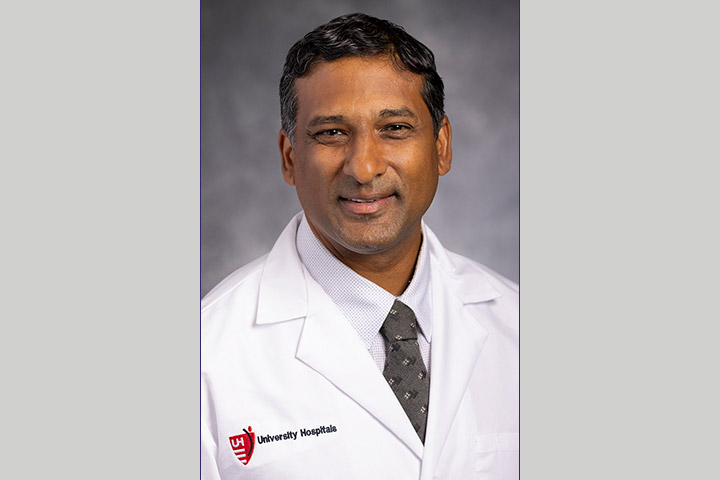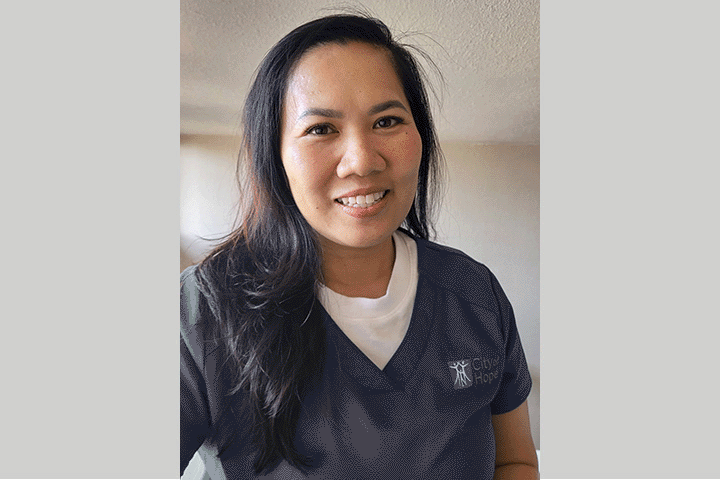Integrative Oncology Explained

If you’ve been diagnosed with cancer, you’ve likely received a smorgasbord of treatments to ensure the best outcomes.
With pancreatic cancer, for example, your oncologist may recommend chemotherapy, radiation, surgery, or a combination of all three. But how do doctors go beyond the basics to support patients throughout their treatment journey, from weathering the toll of toxic chemotherapies to managing fear during survivorship? That’s where integrative oncology comes in.
“On a very basic level, cancer is a disease where patients have lost control over a part of their bodies,” says Santosh Rao, M.D., Medical Director of Integrative Oncology for University Hospitals Connor Whole Health in Cleveland, Ohio. “With integrative oncology, our goal is to support patients during treatment and help them feel less helpless.”
What Is Integrative Oncology?
Let’s start with what integrative oncology is NOT. Integrative oncology is NOT alternative medicine. It’s not dabbling in unproven therapies or experimenting with treatments that lack scientific evidence of safety and efficacy. Instead, integrative oncology focuses on including complementary, evidence-based techniques alongside conventional medical care to improve outcomes and quality of life for patients.
“Integrative oncology is about patient empowerment,” Rao explains. “The idea is to create programs for wellness, to help patients uncover diet, exercise, and stress management strategies that support them throughout their cancer journey and beyond.” The goal: to optimize health and vitality across the cancer care continuum from prevention through survivorship.
Some Hallmark Treatments in Integrative Oncology
Integrative oncology is a patient-centered approach to cancer care. It provides evidence-informed guidance for non-pharmacologic treatments ranging from dietary advice and acupuncture to mind/body practices like yoga, massage, deep breathing and other breathwork techniques, and tai chi.
These supportive treatments have very few side effects, and most of them are not very expensive. “Integrative oncology offers a personalized approach that helps patients manage the toxicities of treatment,” Rao says. “And the ‘right’ approach will be different for each patient.”
Patients who are experiencing pain, for example, may try massage or acupuncture to see if that can reduce their need for narcotic medications. And those who are suffering from nausea might try ginger tea or acupressure in lieu of or in conjunction with pharmaceutical remedies.
“We’re learning more and more about where these therapies fit within the context of cancer care,” Rao adds. “And some of them are becoming standard of care.”
Understanding Integrative Oncology
With integrative oncology, there’s always something healthcare professionals can do to support patients. “Maybe we can’t change the course of a patient’s disease,” Rao says. “But there are a variety of supportive therapies that can help them tolerate treatment and improve their quality of life.”
Integrative oncology hinges on those evidence-based therapies. But if the benefits of a particular technique haven’t been proven in a randomized clinical trial, individual practitioners have varying comfort levels in terms of recommending those therapies to patients. And in most cases, it boils down to a risk–benefit analysis.
“Where I usually lean is, how likely is it to help? And how harmful is it potentially?” Rao explains. “If the modality is absolutely safe and you think it might be helpful, I’m more permissive. The reality is, some of these therapies will produce a measurable response due to the placebo effect, and there’s nothing wrong with introducing something that has the potential to be helpful and is highly unlikely to be harmful.”
Addressing the Whole Person
Integrative oncology aims to “heal” the whole person, not just their disease or their symptoms. The discipline also takes into account a person’s culture and belief system. Traditional healing systems have been a part of different cultural and religious practices for centuries, and they may play a role in a person’s prevention, treatment, and recovery plan.
“The concept of healing means different things to different people, and it can include spirituality, emotional wellness, or physical recovery,” says Rao.
With integrative oncology, patients have access to supportive therapies that can improve both their quality and quantity of life while also attending to lifestyle factors, such as diet, exercise, sleep quality, and spirituality.
In an ideal world, patients will work with their oncologist and supportive care team to create a plan that serves the patient’s best interests—and the patient is always at the center of that plan. “It’s really important to have these conversations inside the medical system with people who are working together,” Rao emphasizes.




